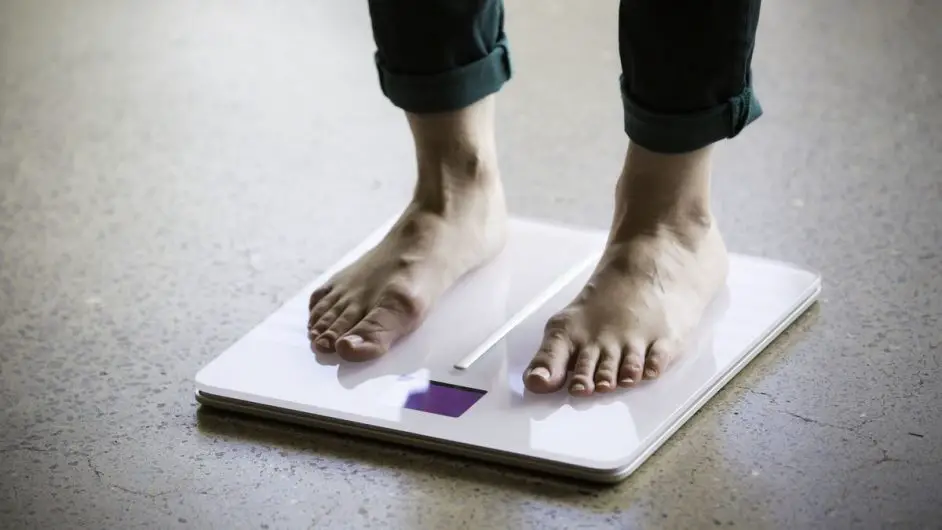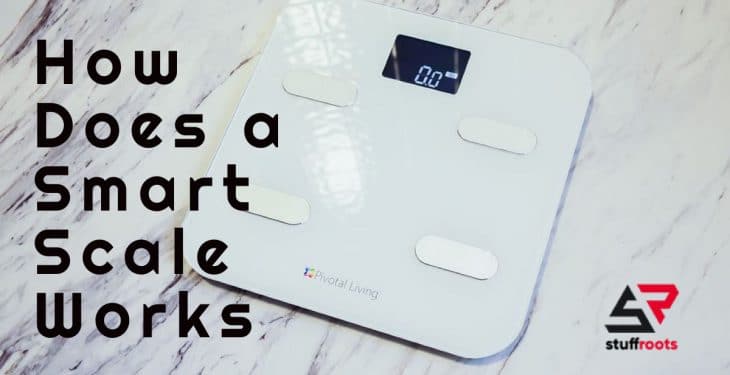How does a Smart Scale Work? Are they really “SMART”?
Studies say that the ubiquity of overweight and obesity in India is growing faster than the world average. The prevalence of overweight has risen by 7.1% among women, while the percentage of obesity escalated by 2.9% between 1998 to 2015. With this alarming condition, we Indians need to understand our bodies well.
It often happens that you are exercising daily and maintaining a healthy diet but cannot budge the meter scale or make it higher. Then it’s just the right time to access your body’s fat percentage.
When you exercise or workout daily, your body losses excess fat; however, simultaneously, your body tends to develop muscles and get toned, which in turn increases your weight. Consequently, you end up either maintaining the same weight or gaining some.
How are you going to know that your workout is bringing in some result?
Our answer is a smart scale.
This device is something that can measure more than just your total weight. It helps you know how many parts of the total weight are due to the fat and let you know about your mass. To put it simply, it gives you a fat-to-mass ratio.
However, these scales are not as fool proof as the professional ones. But you can use them as an option to track your body fat in-between appointments with your doctor or personal trainer.
In this article, I have covered how these smart scales work and to what extent they can be considered an option. Moreover, these scales can be a handy and helpful device if you can understand their mechanism. You can also find other useful information, so give it a read to know more about “smart scales”.
What is a smart scale?
These are the electronic bathroom scales that use smart technologies to measure your weight and other body metrics. These metrics include body composition like the BFP (Body Fat Percentage), bone density, water percentage, and other vital metrics. Some of these smart scales are also designed to measure your body mass index (BMI), a metric that tells you about your weight in relation to height.

Pros and cons
Just like all other self-monitoring devices, smart scales also offer the benefit of convenience. It allows you to analyse the various body metrics by sitting in the comfort of your home at any time.
What’s more?
You don’t need to be a professional to use these smart meters as it is safe and easy to use.
However, its accuracy is still in question. Unlike professional monitors, self-monitoring devices are inexact and can vary up to 21% to 34%. So, it would be best if you do not depend on them solely for your body measurements or bringing any change in your daily routine.
Though these scales are imperfect, you can use them to roughly track your daily exercises or diet’s effectiveness over time, if they remain consistent.
Another drawback of this smart scale is they are incapable of telling you the exact location of your body fat. The precise location of fat stored is crucial, as it helps the doctor analyze how susceptible you are to a specific disease. For instance, if too much visceral fat is stored in your body, you are more likely to develop cardiovascular diseases and diabetes if not checked earlier.
But these smart meters can only tell your overall percentage of your body fat. So, when you are exercising to reduce belly fat, there might be a total body weight change; however, you will not know exactly where you lost the fat unless you visit a professional clinic.
Are they accurate?
As told earlier, the self-monitored smart scales are not highly accurate.
Studies say that the Bio-electrical Impedance Analysis or Bioimpedance Analysis (BIA) method of measuring body composition gives accurate results only when standard mathematical formulas are employed. However, researchers tested a few smart scales and found out that they didn’t implement the approved formulas, resulting in inaccurate estimates.
Other than that, several variables can affect the accuracy of body composition estimation. They are:
- Your gender. Due to biological structure formation, women tend to have more body fat than men. The former can have 6% to 11% more body fat than the latter.
- The location of the fat stored in your body.
- If you are pregnant, though, it is recommended not to use during that period.
- Your age. These scales are not recommended for toddlers and children.
- Your height and body structure.
- Frequent sessions of endurance and resistance training.
Mechanism of smart scales
The smart scales are convenient and easy-to-use self-monitoring devices. The underlying idea for this intelligent scale is BIA ( Bio-electrical Impedance Analysis or Bioimpedance Analysis) to determine the relative percentage of fat and other body composition.
Usually, the flat top surface of the scale has four distinct spots containing underlying sensors, where you need to touch your feet’s sole and heel. While standing on it, a small electrical impulse is sent from one foot. It passes through your leg, crossing the pelvis to reach the top of your body, and come back through another foot to hit the scale, thus completing the circuit.
Meanwhile, the smart scale measures the time, speed, and resistances or obstruction faced by the current during its journey. The resistances are the tissues and fats in your body, which has less water content than the muscles. Thus, the speed of the current reduces while crossing these regions. However, when the current passes through the muscles and water in your body, it tends to flow faster.
Followingly, the scale put all these measured values in the mathematical formulas along with information like your height, age, and gender. You can supply this information to the scale via any liked up the smart app. Then, it estimates the relative percentage of total fat, water, muscles, and bones density and displays it using the same linked up app on your smartphone or smartwatch. Few of these smart scales are also designed to calculate the BMI, which is considered one of the essential body metrics.
This information can also get stored in a smartphone or smartwatch and give you a better analysis by showing the data in the form of stats and graphs. It helps you to get a better idea about your health conditions.
Tips for better analysis
Whenever we use self-monitoring devices, we always remain concerned about their accuracy. Since the device’s mechanism or accuracy is not in our hands, we can make some external efforts to bring more precision to the measurement results. So, here are some tips you can follow to make your measurements more precise.
- Since these scales use electrical impulses, any extra obstruction can throw off the analysis. That means, when you use these scales, stand barefooted on them instead of wearing slippers.
- Don’t hold any object in your hand while analysing, as it can affect the measurement.
- Few smart scales are designed to withstand the bathroom conditions like condensation from hot showers or minimal water exposure. However, they should be used with dry feet to avoid slipping or damaging the device.
Is the smart scale safe for all?
Yes, it is. These scales are very much safe and can be used by all teenagers and adults. However, just like everything, these scales also have exceptions. They are:
- It is suggested not to use these electrical scales if you have a pacemaker or an implanted defibrillator in your body. The reason is simple- as the scales tend to send electrical impulses through the body, there is a high chance of it affecting the pacemakers, causing them to malfunction.
- Smart scales should not be used during pregnancy. Though there is no scientific evidence of electrical impulses affecting the baby’s health, yet as a precaution, most manufacturers add a “caution” of consulting a physician before using smart scales. And as the saying goes, “it’s better to be safe than sorry”.
If the above two caution does not apply to you, find a good Smart Scale in India and buy one for yourself.
Always Remember
Though these scales are safe, they are not so accurate to be solely dependent on them. But it can be a way to roughly keep track of your health for those who don’t have specialist always following them with calipers and needles. However, make sure that you don’t take every report for granted. If there is any measurement bothering you, consult a doctor before reaching any final medical decision.
Body Mass Index (BMI)
As discussed earlier, BMI is considered to be a more critical metrics while analysing your body fitness. Therefore some of the latest smart scales are designed to examine the BMI of your body.
It is the measurement of your weight in relation to your height. Generally, your BMI will correlate with your total body weight. To be precise, if your BMI score escalated, so must be your total body fat.
Though it cannot measure fat, it helps you analyse if you are in the right weight range regarding your height and weight.
As per WHO, an individual can be categorized as underweight, average overweight, or obese if their BMI comes under the following range.
| Body Mass Index (BMI) | Weight Status |
| Below 18.5 | Underweight |
| 18.5-24.9 | Normal |
| 25.0-29.9 | Overweight |
| 30.0 plus | Obese |
Sometimes, higher BMI can also be an indicator of some high-risk health problems like:
- High blood cholesterol or other lipid disorders
- Type 2 diabetes
- Cardiovascular disease
- Stroke
- Hypertension
- Cancer
- Gallbladder disease
- Sleep apnea and snoring
- Osteoarthritis and joint diseases
Which one to consider – BMI vs. BFP?
Body Mass Index (BMI) determines the weight per square meter of your body. To put it simply, it helps you to determine if your body weight is likely to affect your health. Though this metric can not define your body fat directly, it is a useful tool for knowing whether you are in the right health condition or need some help, says CDC. Moreover, BMI does not include your muscle mass. That means, even if you are exercising daily and replacing your body fats with healthy muscle, you may get an “overweight” in the BMI chart. But that’s not true all the time.
On the other hand, Body Fat Percentage (BFP) refers to the total body fat you have out of your body’s total mass. This percentage includes storage body fat (excess of this fat can be harmful) and essential body fat (important for maintaining a healthy life and reproductive functions).
So, it’s not like you should only consider BMI or BFP; both the metrics are equally important. At the same time, analysis of your fitness, both values can be helpful to determine your dietary and exercise choices. If either of the value is higher than the average value, make sure to visit your doctor. Sometimes, higher values could be an indicator of an increased risk of heart diseases.
FAQs
What are the alternative methods of estimating BFP?
As an alternative to smart scales, you can use calipers to estimate your body’s BFP. You can also use hand-held BFP devices, which uses the same mechanism as the standing on monitors.
But if you want a more accurate result, you can consider a lab visit where more professional monitors will be used. You can opt for the Bod Pod test or Hydrostatic underwater weighing.
What is the best time for measuring fat?
Tracking your weight around the same time of the day and under the same conditions give you a better idea about your changing weight. Measuring the body fat in the morning, after emptying your bladder is a good idea.
Should we drink water or eat breakfast before measuring fat?
The empty stomach on the scale represents your real fat and weight. So, don’t intake any fluids or the first meal of the day (no matter how small) before you hop on the smart scale.
Is BMI applicable for all?
For most people, BMI can be an excellent way to screen their excess weight. However, this method fails to tell you about the actual body composition like muscle weight, fat, bone weight, other tissues, and water.
As a result, a muscular man can be declared “overweight” when he is healthy and has more muscle weight and less fat percentage. In contrast, an elderly and fragile person can be determined as “fit and healthy” when he has a high-fat percentage and less muscle mass.
So, whenever you measure BMI, consider your body structure too.
Does body fat percentage change during the day?
No, not at all. Moreover, body fat does not change from day-to-day. So, hopping on the smart scale once per week can be a good idea for tracking your weight over time.






